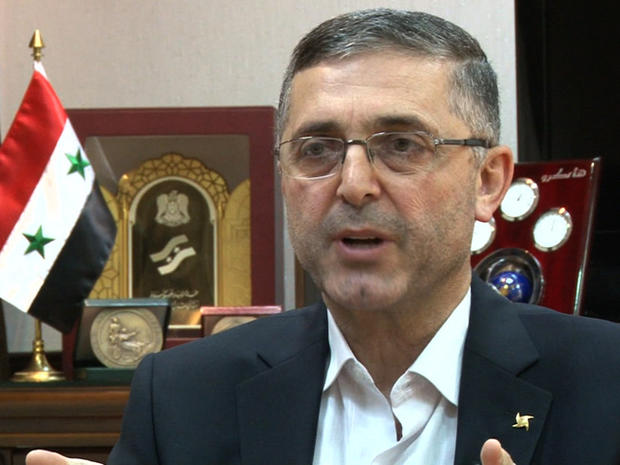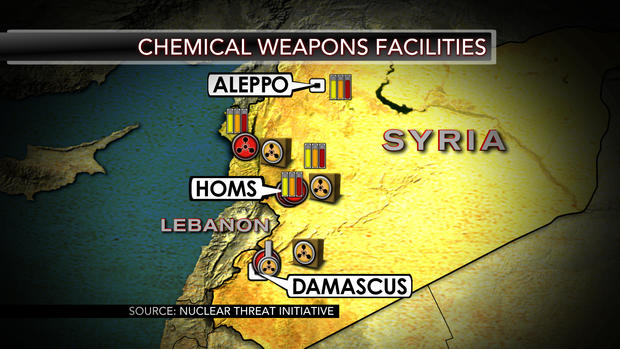Syrian official claims access to chemical arsenal will be easy
(CBS News) DAMASCUS, Syria - The idea of a peaceful solution to the Syria crisis is seductive -- but could be deceptive as well. The five permanent members of the U.N. Security Council gathered Wednesday to take up the Russian plan for Syria to give up its chemical weapons. Meanwhile, Secretary of State Kerry is heading to Geneva Wednesday night to meet with his Russian counterpart, Sergei Lavrov. They talked by phone earlier in the day.
All of this maneuvering is aimed at heading off a U.S. military strike to punish the Syrian regime -- locked in a civil war -- for a nerve gas attack three weeks ago Wednesday. The Obama administration said that attack left more than 1,400 Syrian civilians dead. The president in his speech Tuesday night said the images of it are "horrifying" and "sickening." CBS News interviewed an official suddenly happy to talk about chemical weapons after the government had refused to admit its existence for 20 years.
Two years ago, when Ali Haider was working as a doctor, he didn't have to take a gun to work.
But now he's the optimistically-named "Minister for Reconciliation," a new post created to mediate between armed factions in Syria's escalating war.
U.S. dealing with Putin on Syria carries risks
Iran's FM: Obama put himself in a trap over Syria
Syria chemical weapons handover even feasible?
No member of the Assad government will admit it's possible that Syrian troops used chemical weapons in the August 21 attack. But they do say it's still worth getting rid of the weapons to avoid a U.S. strike.
"Syria needed to ease the international pressure," Haider told me. "We wanted to protect the people and not be dragged into an unpredictable conflict with America."
The U.S.-based NTI think tank said that Syria's chemical arsenal is spread between multiple research, production and storage sites across a country that is now a complex patchwork of battle zones and shifting front lines.
Still, Haider said he believes international inspectors will be able to do their work. On whether all the government facilities are not only secure but accessible, Haider said: "Yes. Our facilities are in safe locations, still protected by the Syrian government. So access will be fairly easy."
Easy? Well, that's unlikely. But the challenges of securing the weapons amid the fighting won't be clear until the inspectors are actually on Syrian soil.
Meanwhile, there was a great collective sigh of relief in Damascus when news came of a deal in the offing. One can see people with iPhones high five-ing one another when they read the news. But it didn't last. There was a spark of euphoria that collapsed almost completely and people listening to the shelling and bombing are braced for a lot more fighting. As one young man said to me about what may look like a very long war: "All I can see is killing and more killing on both sides."


